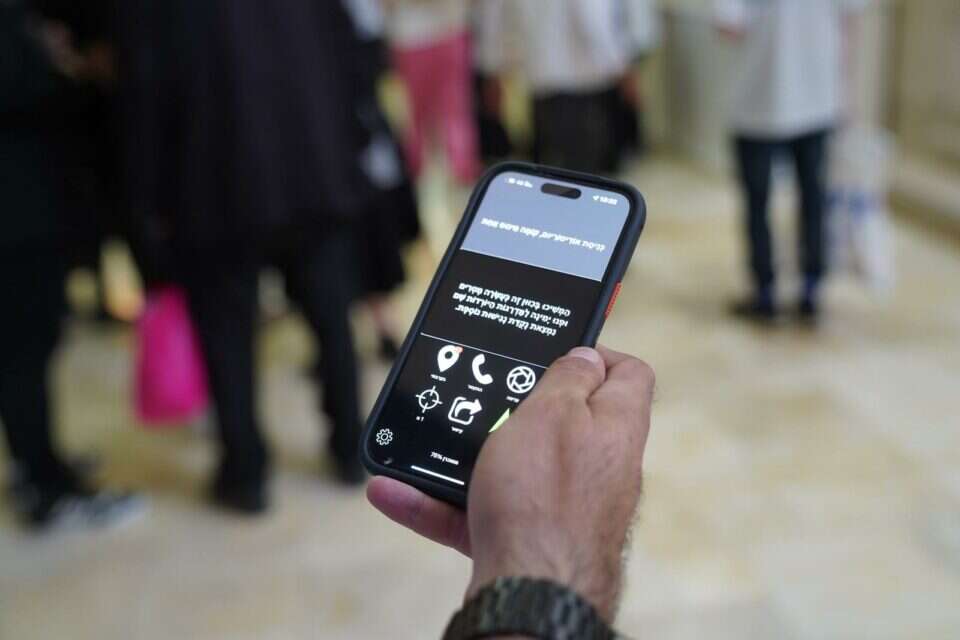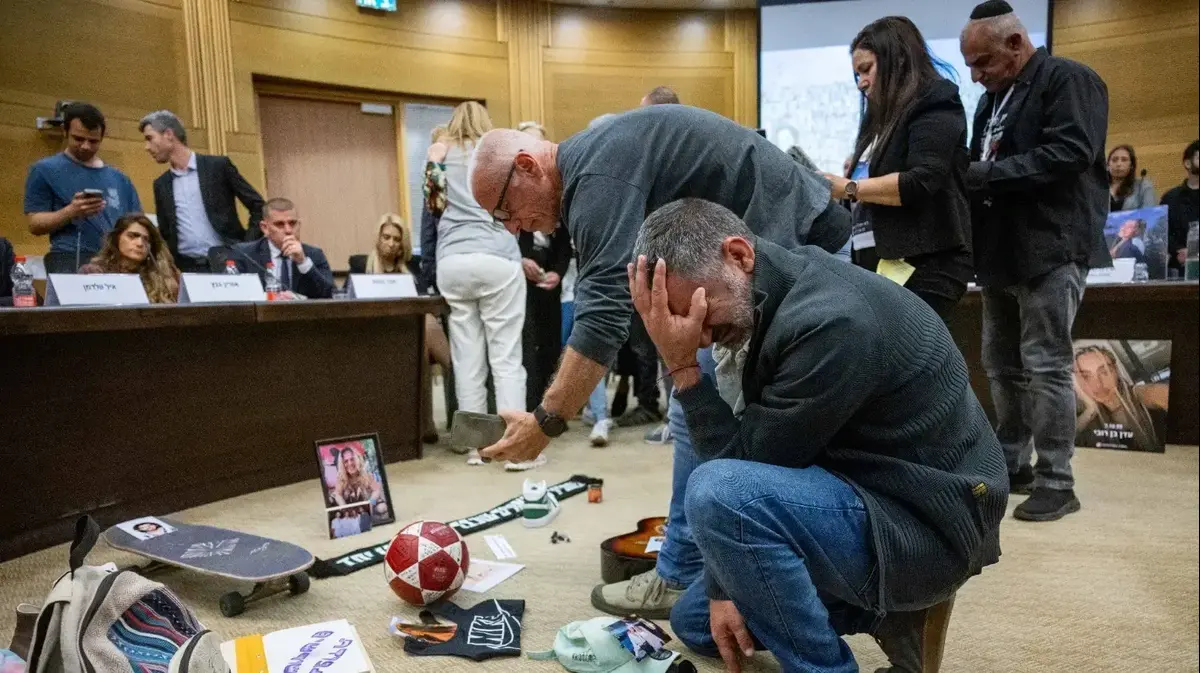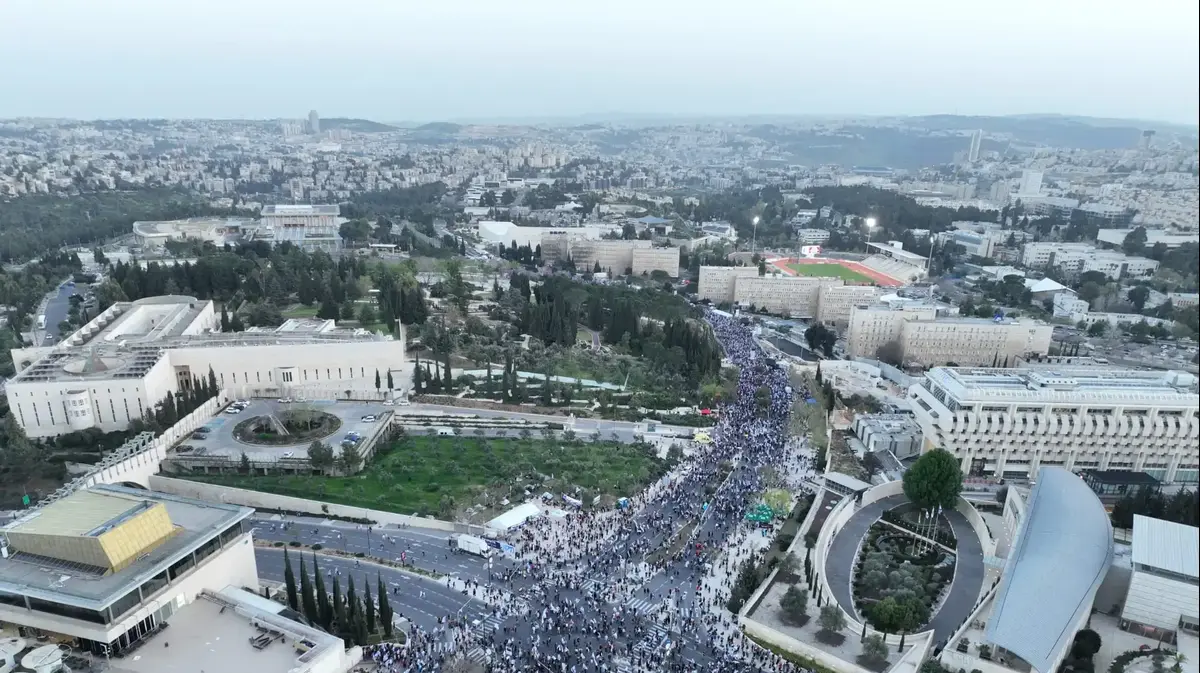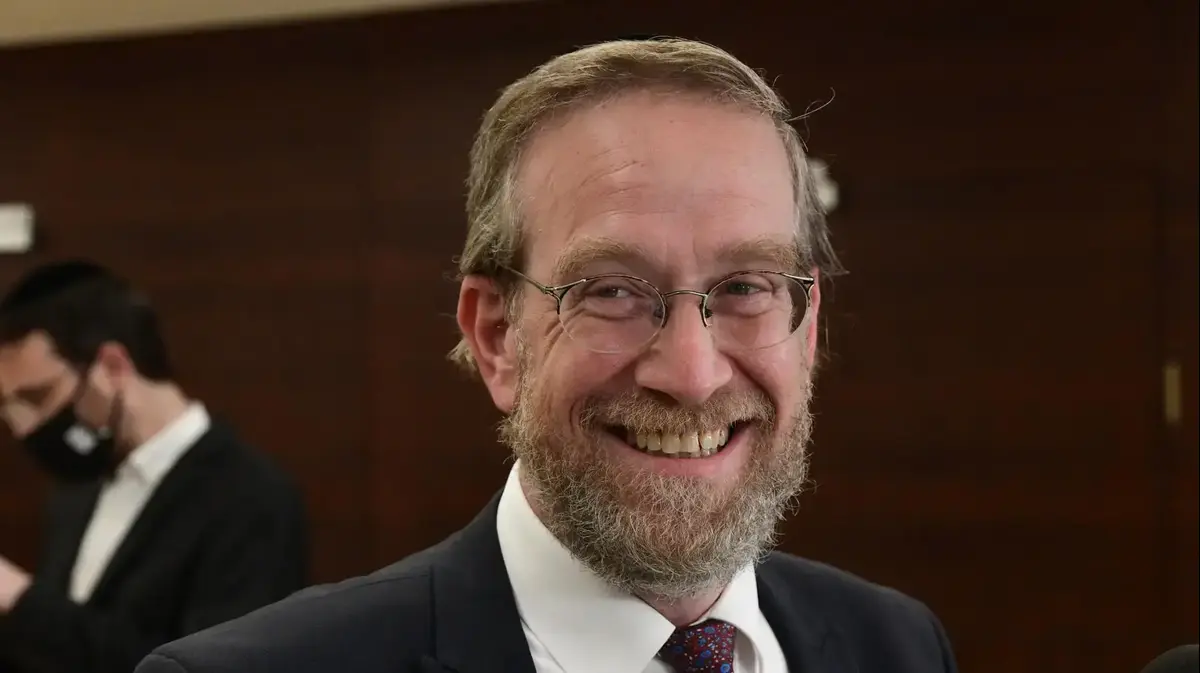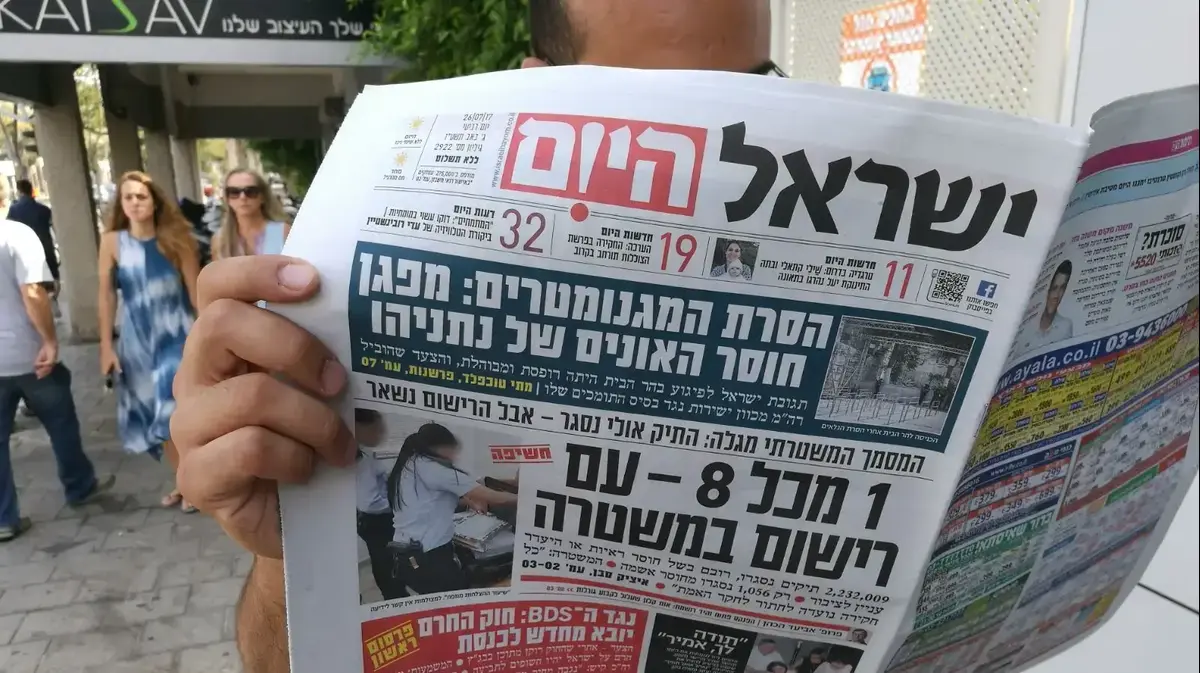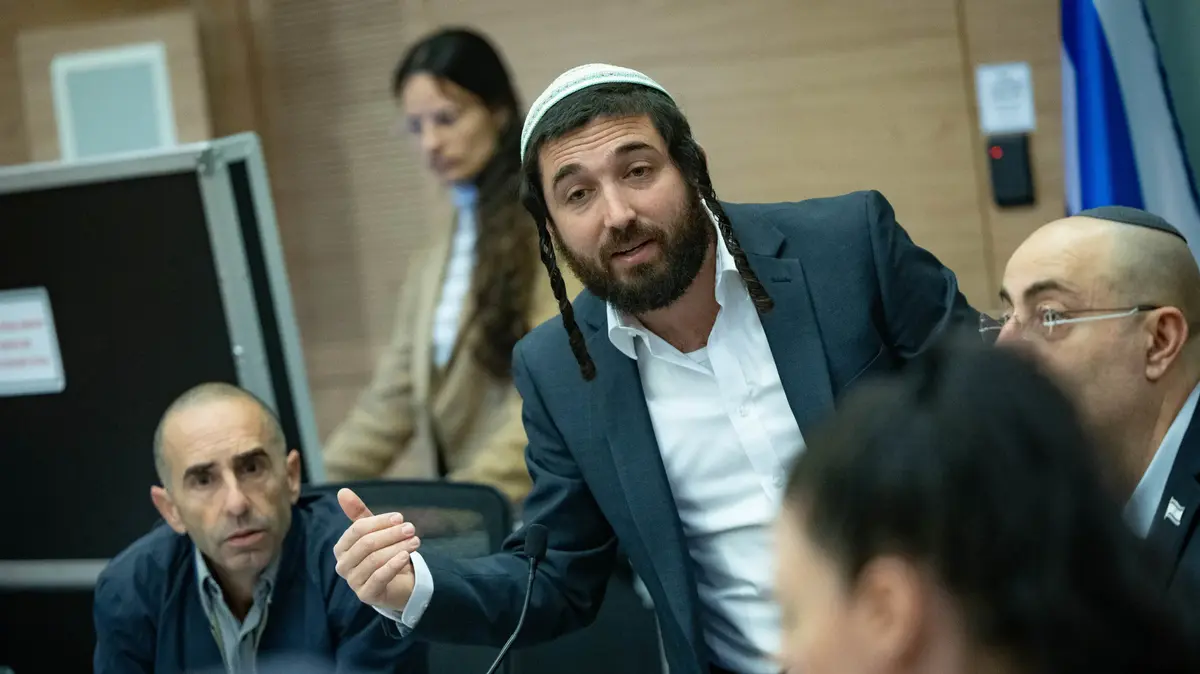On the occasion of Blind D, the Knesset presents one of the many accessibility projects in the Mishkan, which helps blind, visually impaired and people with orientation difficulties to orient themselves optimally in the Knesset through individual voice guidance, developed by the Israeli start-up company Ritahir. Knesset Director General Moshe Chico Edri: "The Knesset will continue to work to make the Residence accessible to people with disabilities and will allow all who come to its gates the best experiences of visiting and democracy. On Blind Day, we are proud to present the technological initiatives we are implementing in the Knesset with a constant desire to continue innovating."
The Knesset held an event today in solidarity with the blind and visually impaired entitled "We Can't See from a Meter." Hundreds of event invitees who came to the building, which is considered one of the most accessible parliaments in the world, were also able to use the orientation system for the blind, which is successfully operating in the Knesset and elsewhere through the "Ritahir" app. The company recently completed a financing round led by the Menomadin International Impact Fund.
Knesset Director General Moshe Chico Edri commented on the technological project that is successfully operating in the Mishkan, saying: "The Knesset will continue to work to make the Mishkan accessible to people with disabilities and will allow all who come to its gates the best experiences of visiting and democracy. On Blind Day, we are proud to present the technological initiatives we are implementing in the Knesset with a constant desire to continue innovating."
"The innovative system that helps make the Knesset accessible includes a management and control module and about 55 sensors operating via Bluetooth communication, which were distributed at points of interest throughout the Tabernacle," explained Sharon Cohen, Head of Systems and Applications in the Knesset Technology and Computing Division, "Through a dedicated application on the user's personal phone and free for him, a person with disabilities is able to orient himself in the Tabernacle space. When he reaches a point of interest or crossroads, he can receive information about the point he has reached, as well as information about what exists at eight points in the direction to which the phone is pointing. In addition, at the specific point of interest he has reached, he can call for help from a nearby place and also access additional and extensive information regarding that point of interest, such as the Declaration of Independence and the Knesset plenum."
According to Cohen, points of interest were located in all places relevant to visitors, starting with the bus stop near the Kiryat HaLeum parking lot, at the bus stop at the entrance to the Mishkan, through the main gates and in all possible places to visit and tour around the Mishkan. "In addition, the system makes it possible to present expanded information through a link to the Knesset website for unique points of interest and interesting exhibits including pictures and art installations, thus providing additional service for users."
Meirav Cohen, Knesset accessibility coordinator, explained that the accessibility process is ongoing all the time. "We are trying to improve and keep up to date with new technologies for optimal accessibility. The accessibility process through the Ratehir system included analyzing the needs of people with disabilities, mapping the points of interest in the building, integrating the information at all dozens of points of interest, documentation, guidance and full accompaniment until implementation.
Additional accessibility solutions for the visually impaired and blind are currently being promoted, alongside those already operating in the Tabernacle."
The developer noted that the system links a dedicated mobile application with wireless signals strategically located in public spaces and accessible points, provides audio descriptions of the environment and transmits them directly to smartphones or tablets. In this way, the system enables the blind, visually impaired or people with orientation and guidance difficulties independently to experience the world safely. "The Menomadin Foundation has invested in our voice signage system," the Israeli company explained, "enabling visually impaired and blind people free use of an application adapted to all cellular devices alongside constant updating and development of the application."
Wrong? We'll fix it! If you find a mistake in the article, please share with us

